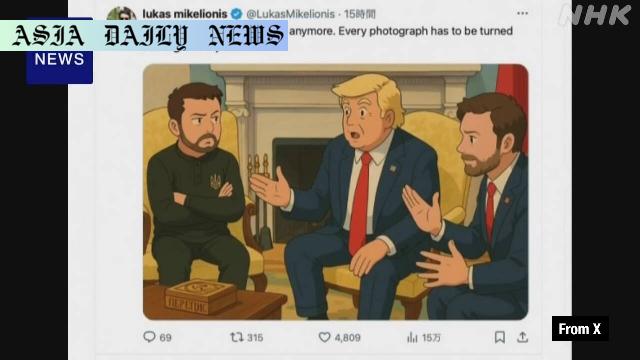copyright concerns: OpenAI’s Studio Ghibli-inspired feature sparks debates over potential misuse of copyrighted works.
Key Point 1: OpenAI now allows users to generate Studio Ghibli-style images using ChatGPT.
Key Point 2: Concerns arise regarding the use of copyrighted anime works as part of AI training datasets.
Key Point 3: OpenAI’s CEO Sam Altman joined the trend by updating his social media image.
Key Point 4: Copyright lawsuits, similar to past claims involving newspapers, could pose challenges for generative AI tools.

Introduction
OpenAI has sparked a heated debate with the launch of its image-generation feature within ChatGPT. The technology lets users create images in the distinctive “Studio Ghibli style,” emulating the artwork from the beloved Japanese anime studio. Although this breakthrough seemingly pushes the frontiers of generative AI, it simultaneously raises significant concerns about intellectual property (IP) rights and the ethics of content usage and training data for AI systems.
The Popularity of Studio Ghibli-Style AI Images
Since its release, an inundation of Studio Ghibli-style images has exploded across the internet. Paid ChatGPT users—excited by the feature—have transformed personal photos, cultural moments, and even political events into whimsical, animated renditions. A particularly viral set of images recreated last month’s White House meeting between US President Donald Trump and Ukrainian President Volodymyr Zelenskyy in the signature Studio Ghibli style. Such creative explorations demonstrate the excitement among users, while also broadening the scope of AI imagery in cultural dialogue.
Legal and Ethical Concerns Over Copyright
The surge of output doesn’t come without repercussions. Intellectual property advocates, social media users, and major media outlets have already begun raising questions about the legality of this image-generation feature. The core issue lies in the presumed usage of Studio Ghibli’s copyrighted works to train OpenAI’s AI systems—a common ethical grey zone in AI development. If OpenAI failed to obtain permission or compensate rights holders, this step constitutes copyright infringement in numerous global jurisdictions.
This situation isn’t entirely new for OpenAI. In April last year, a notable lawsuit was filed by eight US newspapers against OpenAI and Microsoft, alleging that the companies had illegally accessed millions of their copyrighted articles for AI model training. The parallels between these cases illustrate an ongoing challenge facing AI developers: the inability to separate innovation from questions of ownership and fair compensation.
The Debate Surrounding Generative AI Progress
While OpenAI’s Studio Ghibli-inspired offerings captivate the imagination, they place businesses and governments at a crossroads. Should technological innovation be prioritized over ethical considerations, or can frameworks exist to bridge both creativity and intellectual property protections? As demand for generative AI tools rises, institutions like the legal infrastructure must keep pace with enforcing accountability and transparency. This situation also compels companies like OpenAI to rethink their development processes to ensure intellectual integrity.
Conclusion
The rise of tools like ChatGPT’s Studio Ghibli-style generation feature highlights a conflict between creative potential and the necessity to respect intellectual property rights. These issues are unlikely to resolve themselves without clear global regulations. Moving forward, balancing innovation with ethical behavior is crucial as AI infiltrates various industries and user communities worldwide. How OpenAI and the broader tech sector react to copyright concerns will set significant precedents for future advancements in generative AI technology.



Commentary
The Allure of Studio Ghibli Imagery in AI
Studio Ghibli’s distinctive artistic style holds a special place in global culture, with its lush landscapes, ethereal characters, and deep emotional resonance. Tools that enable users to replicate this aesthetic undoubtedly appeal to fans and artists alike, offering endless creative opportunities. OpenAI’s introduction of this image-generation feature taps into that universal admiration, allowing ordinary people to transform mundane images into whimsical works of art. However, the ease with which users can recreate such iconic visuals prompts questions about the ownership and licensing of such tools.
Balancing Creativity and Copyright Integrity
As much as generative AI systems present groundbreaking tools for reimaging the creative process, they also probe into gray areas regarding intellectual property. Training AI systems on copyrighted content without explicit permission not only breaches cultural and creative values but could deter creators from continuously producing new works. The admiration for “Studio Ghibli-style” AI images is understandable, but every iteration needs to honor the legacy of original creators through proper licensing frameworks.
Ensuring Ethical AI Innovation
This latest controversy emphasizes the need for policymakers and AI developers to adopt stricter standards with regard to copyright and IP laws. Learning from lawsuits like those brought against OpenAI by US newspapers, the tech industry must embrace greater transparency and accountability. Consumers, too, play a critical role in this dialogue by advocating for an ethical approach to machine learning and generative art. Failing to reach a solution risks jeopardizing the trust and collaborative spirit that underpins advancements in AI and technology at large.